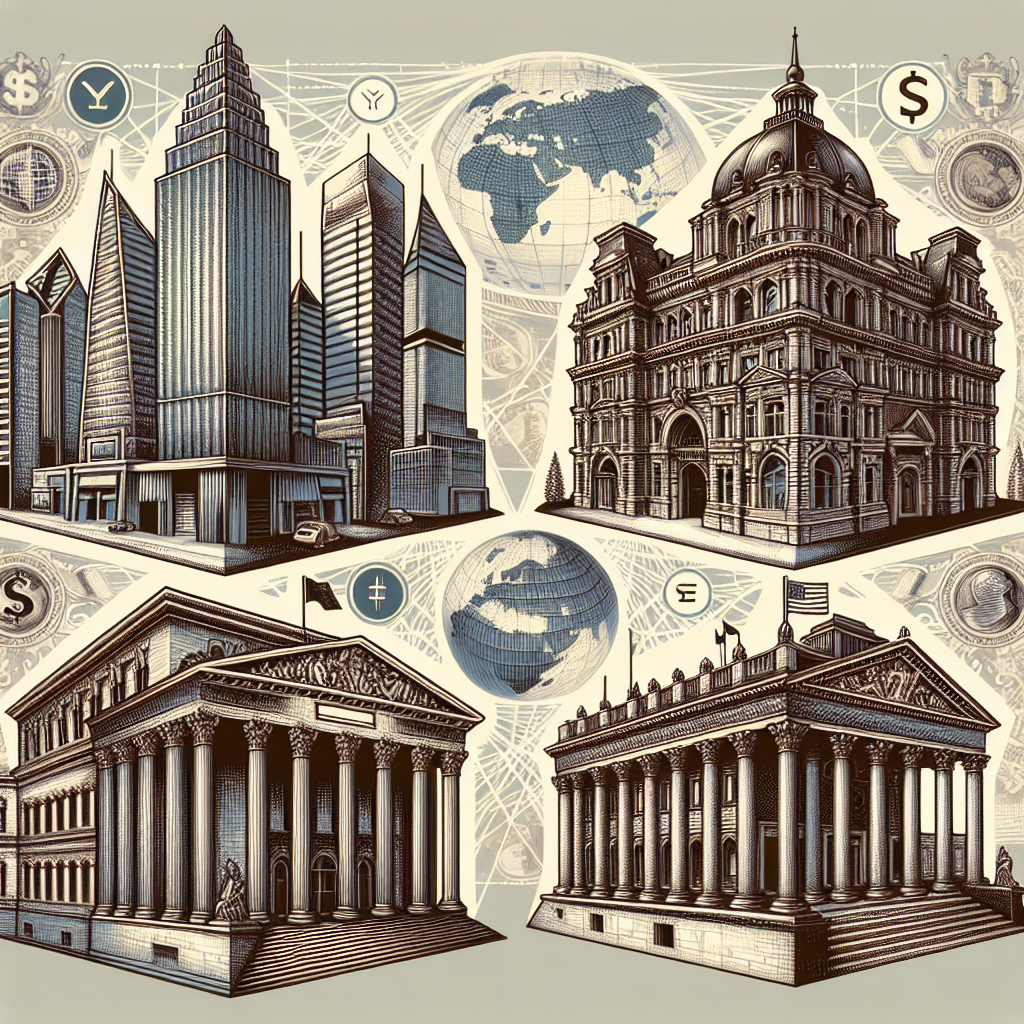
A Comparative Look at Major Global Financial Institutions
# Comparison of Global Financial Institutions
In an interconnected world economy, global financial institutions (GFIs) play pivotal roles in maintaining financial stability, fostering economic growth, and facilitating international trade and development. These institutions vary in their structure, functions, and objectives. This article compares some of the leading GFIs, shedding light on their unique roles within the global financial ecosystem.
##
Introduction to Global Financial Institutions
Global financial institutions are cornerstone entities that support economic cooperation and provide financial services at an international level. These include banks, insurance companies, and specialized financial entities created by national governments or international bodies. Their primary aim is to ensure the smooth operation of the global financial markets, promote economic stability, and assist in developmental projects across countries.
##
The International Monetary Fund (IMF)
###
Overview
The International Monetary Fund is an organization of 190 countries, working to secure financial stability, facilitate international trade, promote high employment and sustainable economic growth, and reduce poverty around the world.
###
Functions
The IMF monitors the international monetary system and the economic and financial policies of its member countries. It provides financial resources to help countries in trouble, aiming to rectify balance of payments problems.
##
The World Bank
###
Overview
The World Bank is an international financial institution that provides loans and grants to the governments of poorer countries for the purpose of pursuing capital projects. It comprises two main parts: the International Bank for Reconstruction and Development (IBRD) and the International Development Association (IDA).
###
Functions
The primary focus of the World Bank is to reduce poverty and support development by providing financing for projects that improve healthcare, education, environmental protection, and infrastructure in developing countries.
##
The Bank for International Settlements (BIS)
###
Overview
The Bank for International Settlements is an international financial institution owned by central banks, which “fosters international monetary and financial cooperation and serves as a bank for central banks”.
###
Functions
The BIS’s main role is to serve central banks in their pursuit of monetary and financial stability, to foster international cooperation in those areas, and to act as a bank for central banks.
##
The World Trade Organization (WTO)
###
Overview
The World Trade Organization is an intergovernmental organization that regulates international trade. The WTO officially commenced in 1995 under the Marrakesh Agreement, replacing the General Agreement on Tariffs and Trade (GATT) that was established in 1948.
###
Functions
The WTO deals with the regulation of trade between participating countries by providing a framework for negotiating trade agreements and a dispute resolution process aimed at enforcing participants’ adherence to WTO agreements.
##
Comparative Analysis
While each of these institutions serves the global economy, they differ significantly in their focus and functions. The IMF and World Bank are more closely related in their efforts to ensure global financial stability and development but differ primarily in their methods and areas of focus—with the IMF dealing more with macroeconomic issues and the World Bank with poverty reduction and development. The BIS focuses on serving central banks in their pursuit of monetary and financial stability, acting somewhat as a bank for these institutions. Meanwhile, the WTO stands out for its focus on regulating international trade rather than directly providing financial resources or stability mechanisms.
The choice of institution for assistance or cooperation depends on the specific needs of a country or project. Whether it’s seeking financial stability, developmental aid, trade regulations, or central bank cooperation, the global economy has a variety of institutions at its disposal, each playing a unique role in fostering global economic harmony and development.